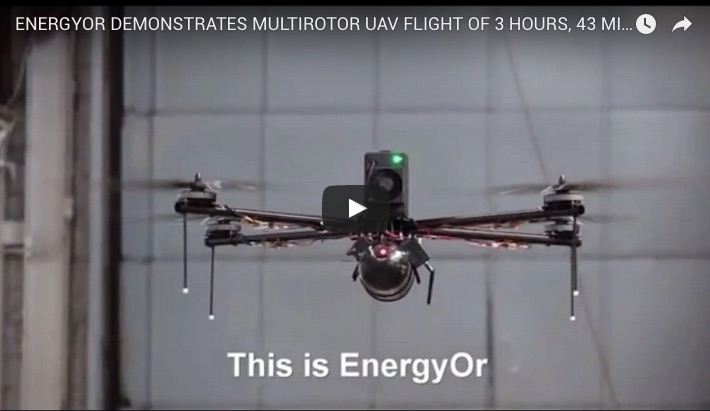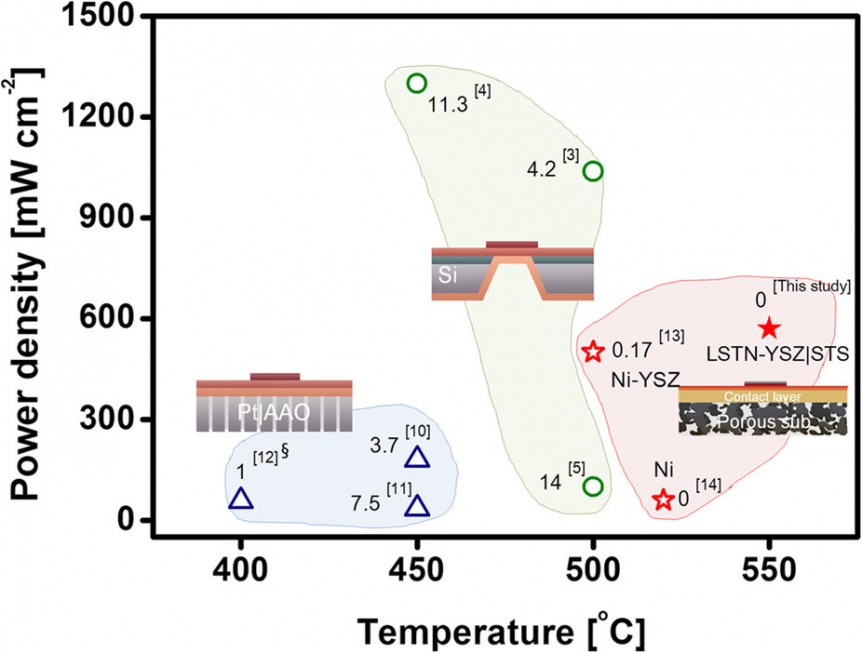Staying airborne for more than an hour or two might seem like a huge leap for battery-powered electric aircraft. Inspired designers like Eric Raymond have been able to use solar cells to extend their flights to near-perpetual states. A large craft like Solar Impulse 2 remains in flight for up to five successive days and nights only through careful energy management and flight planning. Researchers are looking at hydrogen fuel cells as an alternative to batteries, with the hopes of achieving greater endurance. One company, EnergyOr, has developed two still small fuel cells to power their rotary- and fixed-wing drones, setting several records in the process. With payloads and maximum takeoff weights that enable carrying a 4K camera or large hydrogen tanks for long range flights, EnergyOr’s aircraft have demonstrated their abilities. The small experimental fuel cell described in our last entry is good news for small-scale drones – until the researchers scale things up to suit larger applications. Their …
Fuel Cells for Drones: Going for Endurance
Several fuel cell developments show there are lots of options for burning hydrogen, if we can only make and distribute it in great enough quantities. Most noteworthy, fuel cells could provide increased endurance and range compared to batteries. Professor Gyeong Man Choi and his Ph.D. student Jun Joong Kim, working at the Pohang University of Science & Technology (POSTECH) in South Korea, have developed a miniaturized solid oxide fuel cell (SOFC) that can fly a drone for more than an hour. On the consumer front, their fuel cell would allow cell phones to be charged just once a week. The professor and his students created the fuel cell to directly replace the batteries normally found in cell phones, laptop computers, and drones. Their third generation SOFC “has been highly evaluated” because it is not restricted to smaller forms, but could be scaled to larger capacities “that can be used for a vehicle.” The fuel cell has a simple structure and …


